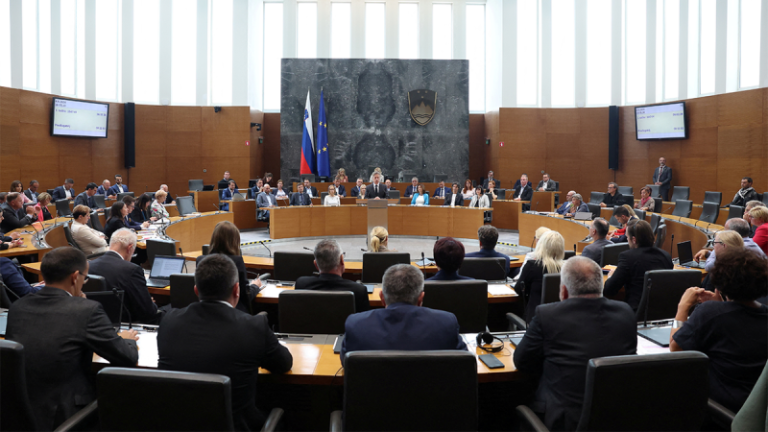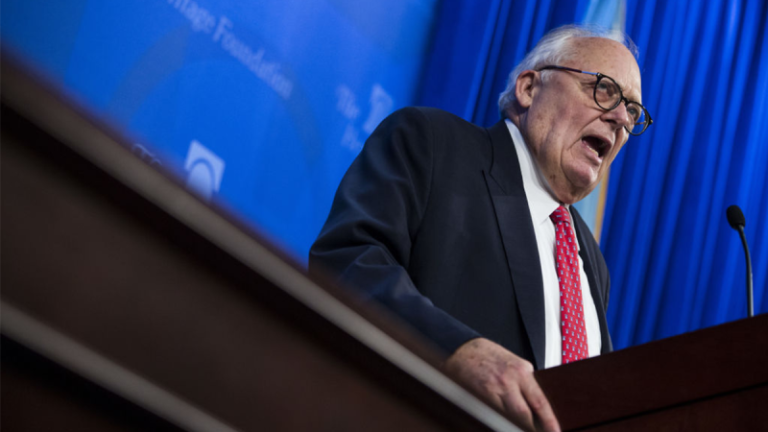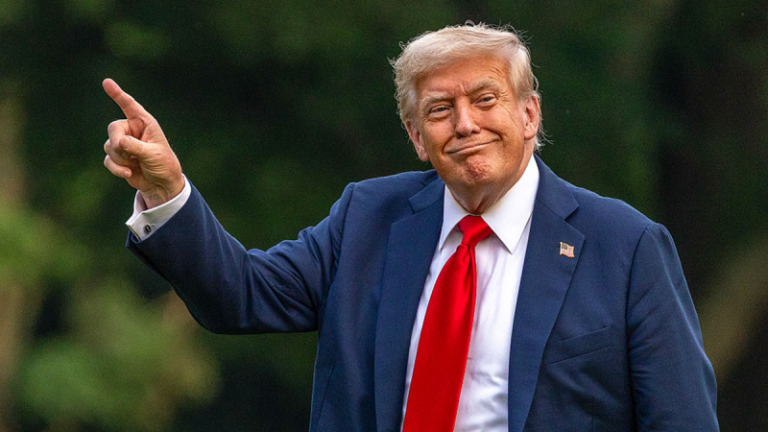President Trump has been in office for six months, delivering on campaign promises, securing his ‘big beautiful bill’ by his self-imposed deadline and taking decisive action on the world stage.
The president was sworn into office Jan. 20, and the Trump administration has operated at warp speed since Day One.
Key tenets of Trump’s first 100 days included imposing harsh tariffs on Chinese imports, starting and continuing peace negotiations between Russia and Ukraine, and cracking down on border security amid a mass deportation initiative.
The next chapter of the second Trump administration began, with the House of Representatives, as promised, passing Trump’s ‘One Big Beautiful Bill,’ before Memorial Day, sending it to the Senate for weeks of negotiations.
The Senate made its changes, approved the legislation and kicked it back to the House just in time for the lower chamber to pass the bill before Trump’s self-imposed Fourth of July deadline.
The president welcomed House and Senate Republican leadership to the White House July 4 for a signing ceremony on his landmark legislation, which included key provisions that would permanently establish individual and business tax breaks included in his 2017 Tax Cuts and Jobs Act, and incorporate new tax deductions to cut duties on tips and overtime pay.
Trump’s second administration has also focused on the new Department of Government Efficiency (DOGE), which was run by Elon Musk. DOGE proposed cuts to programs that the Trump administration chalked up to wasteful and excessive government spending.
Congressional lawmakers prepped a rescissions package — a bill to codify those DOGE cuts into law. Congress passed that package by its deadline.
Trump signed the package Friday, which blocks $8 billion in funding to the U.S. Agency for International Development (USAID) and $1 billion to the Corporation for Public Broadcasting for the remainder of the fiscal year. The dollars had been allocated by Congress for the duration of fiscal year 2025.
As for Musk, his ‘special government employee’ window expired, and he returned to the private sector. Shortly after, Musk started a short-lived feud with the president, who chose not to prolong the tensions. Trump only hit his former ally briefly, and carried on with business as usual, leaving Musk to a lonely rant on social media.
Meanwhile, on the world stage, the president ordered strikes on Iran’s nuclear facilities.
Trump’s historic precision strikes on Iran’s nuclear sites in June hit their targets and ‘destroyed’ and ‘badly damaged’ the facilities’ critical infrastructure — an assessment agreed upon by Iran’s Foreign Ministry, Israel and the United States.
But Iranian Supreme Leader Ayatollah Ali Khamenei recently issued his latest threat against the U.S. and ‘its dog on a leash, the Zionist regime (Israel),’ saying that Iran’s attack on U.S. Al Udeid Air Base in Qatar was just the beginning of what Tehran could throw at Washington. He warned that ‘an even bigger blow could be inflicted on the U.S. and others.’
Iran has until the end of August to agree to a nuclear deal with the United States and its allies, Fox News has learned.
Secretary of State Marco Rubio and the foreign ministers of France, Germany and the United Kingdom set the de facto deadline, according to three sources with knowledge of a call Wednesday among the officials.
If Iran fails to agree to a deal, it would trigger the ‘snapback’ mechanism that automatically reimposes all sanctions previously imposed by the United Nations Security Council.
The sanctions were lifted under the 2015 Iran deal.
In his first six months as president, Trump also signed a sweeping order blocking travel to the U.S. from nearly 20 countries identified as high-risk for terrorism, visa abuse and failure to share security information.
The travel restrictions — announced under executive order 14161 — apply to nationals from 12 countries, including Afghanistan, Iran, Somalia, Libya and Yemen, all deemed ‘very high risk’ due to terrorist activity, weak or hostile governments, and high visa overstay rates.
Domestically, the president has focused efforts on securing the border, with border crossings at a record low.
U.S. Customs and Border Protection reported the lowest number of border crossings in recorded history in June. Nationwide, there were 25,228 CBP encounters, the lowest monthly number the agency has recorded, including a ‘historical low’ of 8,024 apprehensions. Encounters include legal ports of entry, whereas apprehensions are arrests of those coming into the United States illegally.
As for tariffs, the Trump administration had leveled tariffs as high as 145% on Chinese goods following the president’s reciprocal tariff plans in April, when China retaliated against the U.S. with tariffs of its own. China and the U.S. reached a preliminary trade agreement in May, which Trump said China violated in a Truth Social post at the end of May.
An agreement was reached between the U.S. and China in June, which includes China supplying rare earth materials to the U.S., and that Trump will ‘work closely’ with Chinese President Xi Jinping ‘to open up China to American Trade.’
‘Full magnets, and any necessary rare earths, will be supplied, up front, by China,’ Trump said in June. ‘Likewise, we will provide to China what was agreed to, including Chinese students using our colleges and universities (which has always been good with me!). We are getting a total of 55% tariffs, China is getting 10%. Relationship is excellent!’
The president also celebrated the U.S. Army’s 250th birthday with a massive parade in Washington June 14 — kicking off a yearlong extravaganza leading up to America’s 250th birthday.
Outside the White House, Trump administration agencies have delivered on promises.
The Department of Education unveiled plans to scale down its workforce, terminating nearly 1,400 Education Department employees. The Supreme Court upheld Trump’s move.
The Justice Department released the audio of former President Joe Biden’s interview with former Special Counsel Robert Hur. Hur was investigating Biden for alleged improper retention of classified records.
Congressional lawmakers had been demanding the audio of that interview be released since 2024, after the transcript of Biden’s interview was littered with mistakes and revealed significant memory lapses.
The Department of Justice also has started an investigation into Biden’s pardons his final days in office to determine whether they are valid. Fox News Digital has learned the pardons, in his final weeks in office, were signed by autopen, with just one signed by hand — the pardon for his son Hunter.
Trump has also directed Attorney General Pam Bondi to make public any relevant grand jury testimony relating to the Jeffrey Epstein case.
Over at the FBI, CIA and the Office of the Director of National Intelligence, intelligence officials and political appointees are in the process of declassifying all records related to the Trump–Russia investigation, also known as ‘Crossfire Hurricane.’
Fox News Digital also exclusively reported that former FBI Director James Comey and former CIA Director John Brennan are under criminal investigation relating to their actions tied to the Trump–Russia probe.
Fox News’ Emma Colton, Diana Stancy, Elizabeth Elkind and Louis Casiano contributed to this report.
This post appeared first on FOX NEWS




